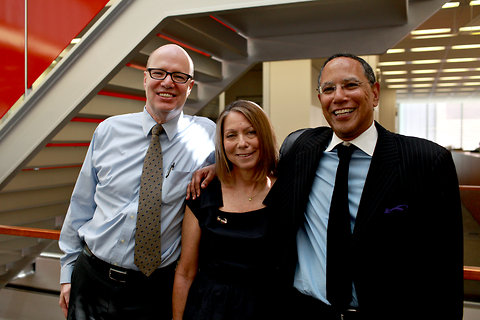It would not, investors seemed to have decided Friday, as a rally in the shares of the French carmaker PSA Peugeot Citroën fizzled along with speculation about a stronger alliance with General Motors and its Opel unit.
According to such speculation, based on a report Thursday by Reuters, the Peugeot family was ready to cede control of the ailing French carmaker that bears its name. The family, which holds a 25.2 percent stake and about 38 percent of the voting rights in Peugeot, was prepared to give up control y if General Motors raised its stake from the 7 percent it already owned, Reuters reported.
Peugeot shares rose as much as 5.5 percent in Paris trading on Thursday based on the report, which also said that the Peugeot family had held talks with Dongfeng, a Chinese automaker. But Peugeot shares retreated on Friday after analysts said neither option was plausible. The shares were down about 3 percent Friday afternoon.
Neither Peugeot nor Opel, which uses the Vauxhall brand name in Britain, is selling enough cars to keep their factories busy. The plants, which cost money even when they are not being used, have contributed to large losses at both companies. In addition, Opel and Peugeot have suffered declining market share and are focused on the depressed European market, without enough sales in healthier regions like China to compensate.
“The business rationale doesn’t stack up,” said Paul Newton, an analyst at IHS Automotive, a market research firm. “They compete in all the same segments in the same markets.”
In both France, where Peugeot has most of its factories, and Germany, Opel’s home base, closing plants and laying off workers is extremely difficult because of labor laws as well as stubborn resistance from unions and political leaders.
“You’d really have to get to work and cut a lot of capacity,” Mr. Newton said. “It would be ugly really. I don’t know why they would want to do it.”
“There is no urgency about a capital increase,’’ a person close to the Peugeot family said, dismissing the reports of a G.M. or Chinese deal as “rumors.” The person, who asked not to be identified by name because he was not authorized to speak publicly on the matter, said the automaker “is always talking with its American and Chinese partners” as part of its normal business.
“But,” the person said, “the Peugeot family is very attached to its history and its stake in the firm.”
General Motors, which reported a loss of $200 million in Europe for the first quarter of this year, said it had no interest in raising its investment.
“Our position remains unchanged: we have no intention of investing additional funds into PSA at this time,” G.M. said in a statement. “We will not comment on speculation.”
But the fact that such talk was taken seriously underscores the perilous situation Peugeot is facing in a European market that continues to shrink five years after the financial crisis hit.
Peugeot, which reported a 6.5 percent decline in sales in the first quarter after a loss of 1.5 billion euros in 2012, is not big enough to finance new products as well as its competitors can or enjoy the same volume discounts on parts.
The automaker also suffers from its dependence on the dismal European market. Car sales on the Continent fell in May to their lowest level in 20 years, and analysts say there is little hope for a turnaround in the foreseeable future.
In Europe, the French company trails only Volkswagen in unit sales. But a vast gulf separates the two companies globally, thanks largely to Volkswagen’s international footprint, including in China, which has become the German carmaker’s largest market.
Peugeot also continues to be outperformed by Renault, its smaller French rival, largely because of Renault’s global alliance with Nissan Motor. The alliance gives Renault international reach that Peugeot, despite big gains this year in China and Latin America, cannot match.

Jack Ewing reported from Frankfurt.
Article source: http://www.nytimes.com/2013/06/29/business/global/investors-wary-of-alliance-talk-for-peugeot.html?partner=rss&emc=rss


